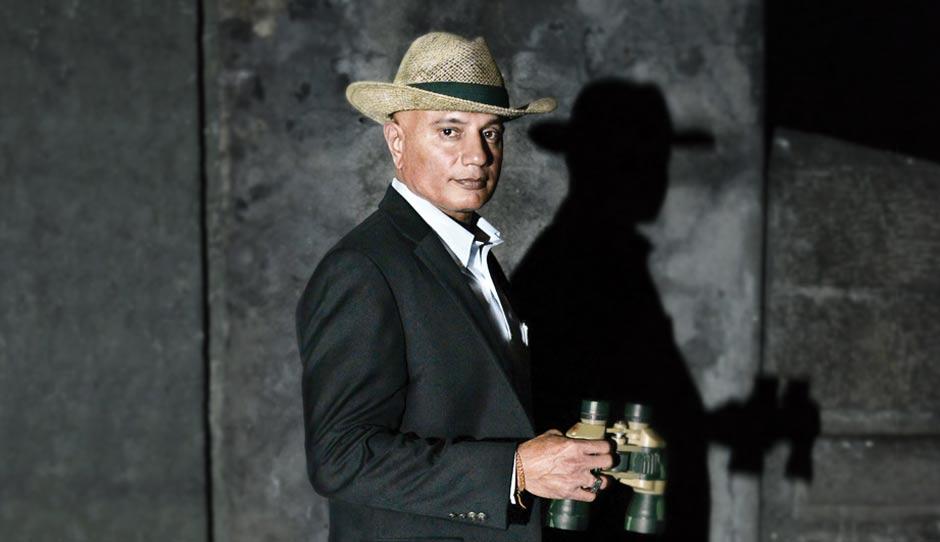Why Zicom's Founder Became a 'Gym Rat' for Business Growth
- BY Sonal Khetarpal
 In
In  10022
10022 0
0

“The increasing number of terrorist attacks in India since 2001 has helped my company grow,” says Pramoud Rao, founder of Zicom, a leading home security systems company in India. Before his eyebrow-raising statement puts you off, Rao quickly clarifies what he means is that the increasing need for surveillance due to terrorism has necessitated a demand for security products. So, Zicom, which struggled to keep afloat for a decade after starting out in 1994 now boasts of annual sales of more than Rs691 crores and a customer base upwards of Rs10 lakhs. Here’s a glimpse into the leadership style and management techniques that has Rao armed himself with to help Zicom grow.
I compete with myself every day, because I don’t want to die thinking I didn’t achieve as much as I could have, or should have.
I get up around 6:30am and have a glass of aloe vera juice. I have been drinking it for the last 20 years. Then, I rush to the temple—my gym. I am a gym rat. No day ever passes without me paying a visit to my holy shrine. I got hooked to working out in 2004. Before that, I was quite overweight. I remember the surprised look on the client’s face when I wouldgo for sales calls. It seemed my weight didn’t go down well with the company I ran. Clients just wouldn’t take me seriously. It’s when I realised how important a role one’s personality plays in business. So, I began working on my physique and there has been no looking back. Now, I sport six-pack abs at the age of 55, and ride a Harley-Davidson to office.
Apart from that benefit, I learnt that an entrepreneur should see themselves as an actor of a movie. Just as an actor takes on the role of a movie character, similarly people in top management must be a personification of what they do, or what their company believes in.
I have a 30 minute ride to work and I am typically in office by 10.30am. The first hour, when all the people are busy settling in, I use the solitude to analyse reports from different departments. I do not check my mailbox. As far as planning my to-dos is concerned, I plan it one day in advance. This is usually during my second silent hour, around 7pm when most of the people have left office. It is then that I diligently write notes of the day’s happenings. Jotting down helps me ascertain which part of business needs my utmost attention.
I try to be involved in all aspects of the company but I do have my focus areas. I concentrate more on partnerships, acquisitions, technology, marketing and sales. But, that doesn’t mean I don’t know what is happening in operations. I don’t think top management should concentrate only on the decision-making aspect. It is equally important to know the reality of groundwork. It helps to make better and more achievable long-term plans for the company.

To do that, I work closely with all the teams. That way I know how work is progressing and which problems need to be resolved. I think that is an absolute must, especially in India, where I feel many people lack a sense of initiative and ownership in their work. It also gives me ample opportunities to ingrain in people the kind of results I expect and want. I see constant interaction as an opportunity to share my passion for Zicom with everyone. Passion is contagious. This is important because in 25 years of my experience I haven’t seen any manager or professional CEO have the kind of enthusiasm for the company that an entrepreneur has. As the company’s founder and MD, I try to be around my people to motivate them to give their best.
Another thing that I try, and very hard too, is to inculcate the vision of our company in the team. Many a times, in committee meetings, everyone tends to express their own personality and personal choices even for a professional decision. I have to then play the role of a referee reminding people about the bigger picture—that they do not work for a company that provides just security equipment. I want people to think that they work for a company that provides a sense of safety to its customers. The logic is simple—when a customer buys a CCTV camera from us, they are not buying the hardware but the benefit they will get from the camera, which is the feeling of being safe. It is important that each one of us remember this so we can bring out new security products for our customers.
It is because of this vision that we have been able to drive innovation in our company. We realised that most mishaps occur in the absence of the users. And, the security solutions are redundant if they inform the customer about the occurrence after it has happened. That gave us the idea to open the first Command Centre in India in 1995. It helps us manage all our security products remotely. We connected all the cameras and fire alarms to it so in case the alarm is triggered or if it is tampered with, we can immediately notify the customer.
The culture of innovation is surely, top driven but it is not only about me trying to influence the team. I am a product of my team members as well. I don’t have any business or management degree. I am a science graduate. All I have learnt about entrepreneurship and managing people comes from the people I work with. In 2010, I went to make a presentation at a client’s office with our services head Ravi Malhan. It was such an education for me. I saw how he prepared for the meeting. He did a background check on all the people who were going to be there, and intentionally reached half an hour earlier so he could talk to them informally before the presentation. He referenced those conversations in his talk, and began his presentation by articluating their company’s needs instead of talking about Zicom. His connect with that audience was incredible. Watching him in action was a great learning for me. From then on, I’ve followed the exact same routine. See, learning is all about observing and applying common sense. I picked this mantra from my father. It’s a continuous process. That’s how I live now. I prove to myself every day of my life that I am good at what I do. I compete with myself every day, and try to outdo myself. I do this because I don’t want to die thinking I didn’t achieve as much as I could have, or should have.





























Add new comment